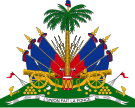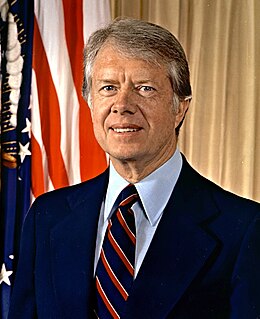
The recorded written history of Haiti began on 5 December 1492 when the European navigator Christopher Columbus happened upon a large island in the region of the western Atlantic Ocean that later came to be known as the Caribbean. It was inhabited by the Taíno, and Arawakan people, who variously called their island Ayiti, Bohio, or Kiskeya(Quisqueya). Columbus promptly claimed the island for the Spanish Crown, naming it La Isla Española, later Latinized to Hispaniola. French influence began in 1625, and French control of what was called Saint-Domingue—modern-day Haiti—began in 1660. From 1697 on, the western part of the island was French and the eastern part was Spanish. Haiti became one of the wealthiest of France's colonies, producing vast quantities of sugar and coffee and depended on a brutal slave system for the necessary labor. Inspired by the message of the French Revolution, Haitian slaves rose up in revolt in 1791 and after decades of struggle the independent republic of Haiti was officially proclaimed in 1804.

Jean-Claude Duvalier, nicknamed "Baby Doc", was the President of Haiti from 1971 until he was overthrown by a popular uprising in 1986. He succeeded his father François "Papa Doc" Duvalier as the ruler of Haiti after his death in 1971. After assuming power, he introduced cosmetic changes to his father's regime and delegated much authority to his advisors. Thousands of Haitians were killed or tortured, and hundreds of thousands fled the country during his presidency. He maintained a notoriously lavish lifestyle while poverty among his people remained the most widespread of any country in the Western Hemisphere.

The Union for a Popular Movement was a centre-right political party in France that was one of the two major contemporary political parties in France along with the centre-left Socialist Party (PS). The UMP was formed in 2002 as a merger of several centre-right parties under the leadership of President Jacques Chirac. In May 2015, the party was renamed and succeeded by The Republicans.
Louis-Jodel Chamblain is a prominent Haitian military figure who has led both government troops and rebels.
Henri Namphy was a Haitian general and political figure who served as President of Haiti's interim ruling body, the National Council of Government, from February 7, 1986 to February 7, 1988. He served again as President of Haiti from June 20, 1988 until his deposition on September 17, 1988 in the September 1988 Haitian coup d'état.
Jean Léopold Dominique was a Haitian journalist and pro-democracy activist. His station, Radio Haiti-Inter, was the first to broadcast news, investigative reporting, and political analysis in Haitian Creole, the language spoken by all Haitian people. He was assassinated on April 3, 2000, a crime for which the intellectual authors have been neither officially identified nor prosecuted.

Gérard Jean-Juste was a Roman Catholic priest and rector of Saint Claire's church for the poor in Port-au-Prince, Haiti. He was also a liberation theologian and a supporter of the Fanmi Lavalas political party, as well as heading the Miami, Florida-based Haitian Refugee Center from 1977 to 1990.

The 2006 elections in Haiti, to replace the interim government of Gérard Latortue put in place after the 2004 Haiti rebellion, were delayed four times after having been originally scheduled for October and November 2005. The elections finally took place on February 7, 2006, with turnout of around 60%. All 99 seats in the Chamber of Deputies of Haiti and all 30 seats in the Senate of Haiti were also contested. Run-off elections for the Chamber of Deputies of Haiti were held on 21 April 2006, with around 28% turnout.

Roch Marc Christian Kaboré is a Burkinabé politician and banker and the President of Burkina Faso, in office since 2015. Previously he served as the Prime Minister of Burkina Faso between 1994 and 1996 and President of the National Assembly of Burkina Faso from 2002 to 2012. He also served as President of the Congress for Democracy and Progress (CDP). In January 2014, he left the ruling CDP and joined a new opposition party, the People's Movement for Progress.
The Christian Movement for a New Haiti is a political party in Haiti.

The 1988 Haitian general election took place on 17 January 1988, after the 1987 general election had been cancelled due to an election day massacre of voters either orchestrated or condoned by the Haitian military. The elections were boycotted by most candidates who had contested the previous elections and turnout was lower than 4%.

General elections were held in Haiti on 22 September 1957. Former Minister of Labour François Duvalier won the presidential election running under the National Unity Party banner, defeating Louis Déjoie, as well as independent moderate Clement Jumelle, who had dropped out on election day in a cloud of suspicions that the army was monitoring the election in favour of Duvalier. Former head of state Daniel Fignolé, considered a champion of poor blacks, was considered ineligible as he had been forcibly exiled months before the election, allegedly kidnapped.

A legislative election was held in Algeria on 10 May 2012. The incumbent coalition, consisting of the FLN of President Abdelaziz Bouteflika and the RND of Prime Minister Ahmed Ouyahia, held on to power after winning a majority of seats. The Islamist parties of the Green Algeria Alliance lost seats.
The Anti-Duvalier protest movement was a series of demonstrations in Haiti from 23 May 1984 – 7 February 1986, that led to the overthrow of President Jean-Claude Duvalier and the Duvalier dynasty regime.
Antoine Adrien (1922–2003) was a Roman Catholic Priest and liberation theology advocate who served as Father Superior of the Holy Ghost Order in Haiti. He also served as Director of the "Petit Séminaire Collège Saint-Martial," attended primarily by children of the country's elite. Adrien was expelled from Haiti in 1969 by the Francois Duvalier regime which accused the Holy Ghost Order of harboring communists working to overthrow the regime.

Inite is a centre-left, social-democratic political party in Haiti. Its founder and leader, René Préval, served as the president of Haiti from 2006 to 2011.
The National Unity Party is a political party in Haiti. It was the de facto only political party in the country during the Duvalier dynasty, an authoritarian family dictatorship of François "Papa Doc" Duvalier and his son Jean-Claude "Baby Doc" Duvalier, which lasted from 1957 to 1986.












